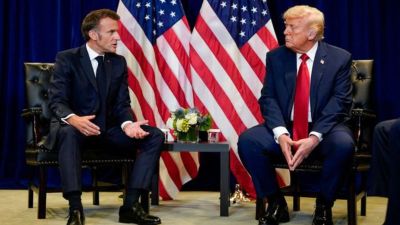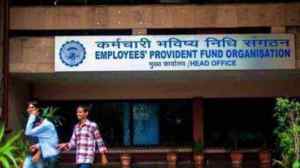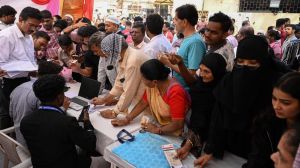A hand for India
IT8217;s a late, lazy afternoon in the grubby industrial pocket of south Mumbai. But surprise guests have upset the routine at the dingy un...

IT8217;s a late, lazy afternoon in the grubby industrial pocket of south Mumbai. But surprise guests have upset the routine at the dingy unit of T.M. Manufacturing Co 8212; makers of playing cards exported to the United States Army, the FBI, the American Automobile Association, even Kentucky Fried Chicken.
Four officious men from the central excise department have arrived to inspect the stock which has prints of state maps, most wanted criminals and emergency medical aid tips.
Forty-something proprietor Ajay Samani name changed on request, has run the modest family business for 28 years. Since Budget Day, he8217;s thought of nothing but alternative business options.
For years, Parksons Games and Sports have been majors in making the playing cards that sell across states in sync with the seasons and festivals. By an unwritten market rule, Punjabis buy playing cards during Diwali, Maharashtrians during the 10-day Ganesha festival, Keralites during Onam.
But the cost of a pack hasn8217;t moved with the seasons. Starting price: Rs 5 per pack. The Parksons8217; annual turnover: Rs 15 crore.
On July 8, these simple calculations went topsy with an eight per cent excise on playing cards.
Sixty to 70 million playing cards are made per year in India, 80 per cent out of dinky cubbyhole printers in Mumbai. 8216;8216;If we absorb even one per cent of the excise, it will eat up our profit margin,8217;8217; says Kapil Kejriwal, partner in Parksons8217;, the three decades-old family business.
The shelves in his air-conditioned, corporate-looking conference room are snug with boxes of Barbie cards and Pytagoras puzzles, so the executives can toy with samples of what the foreign competition plays with.
8216;8216;The excise duty makes me more determined not to produce for the local market,8217;8217; fumes Samani.
Snall manufacturers here can rake in as much as Rs 1 crore and more in sales every year but they are closet manufacturers, neither proud to be publicly associated with their product nor willing to be photographed with it.
8216;8216;There8217;s a lot of stigma to live with,8217;8217; says Samani. 8216;8216;People think we have underworld connections. It8217;s ridiculous.8217;8217; So when the Peddar road resident admitted his daughter to college, he described business as simply: 8216;8216;Printing.8217;8217;
Even courier companies steer clear of delivering playing cards. 8216;8216;It8217;s company policy not to accept a gambling product,8217;8217; says a DHL customer service executive.
8216;8216;Willprinting cost increase?8217;8217; shouts a harried small-scale playing card manufacturer from Vijaywada over crackling longdistance to a pokey print shop in the industrial pocket of South Mumbai.
Here affable Gurdas Rajni 8212; he takes 8216;8216;outsourced8217;8217; print orders for playing card majors in Africa and the Gulf 8212; is president of the 19-member Indian Playing Cards Manufacturers8217; Association. To all callers, he replies with a blunt 8216;8216;Yes8217;8217;. Costs will increase.
Playing card makers depend on an odd mix of straightforward, standard technology print, lacquer, cut, pack and old-fashioned business acumen. Labourers manually count every pack for 52 cards, not one more or less.
Competition for market space is big from within the country 8212; and irritatingly from China. But domestic demand is not bouncing.
8216;8216;The urban youth don8217;t play cards anymore. But competition is big because there are no special technologies or restrictions,8217;8217; says Kejriwal. So Kejriwal8217;s expensive printing machines for playing cards now print everything from soap cartons to toothpaste boxes.
The Khannas of V.V. International switched to producing cartons for Hindustan Lever and Cadburys and now print catalogues and in-house journals too. 8216;8216;Exports compensate for low domestic profits. Aggressive marketing wins us foreign clients,8217;8217; says Vikas Khanna, managing director, V.V. International.
8216;8216;Nobody8217;s just a playing card maker. All have diverse printing jobs to survive,8217;8217; says Rajni, in his low-roof printing office at A to Z Industrial Estate in a south Mumbai suburb. The walls bear frames of rare playing cards, the telephone rings every minute and Rajni warns of a 10 per cent increase in market price.
Meanwhile the Indian Playing Cards Manufacturers Association is huddling over planned visits to the capital with a representation to knock back the 8216;8216;inconvenient8217;8217; excise. 8216;8216;Excise will affect the customer in a big way,8217;8217; says Hardik Vasa, proprietor, Vasa International, dealer and supplier of promotional cards. Maybe it8217;s time to place the cards on the table.
- 01
- 02
- 03
- 04
- 05































